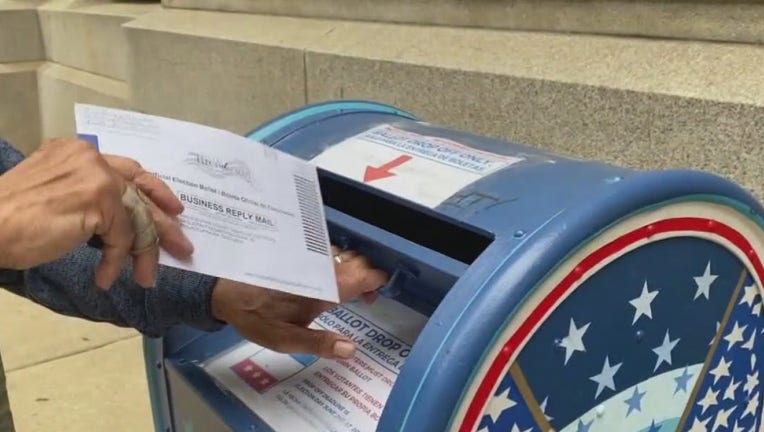Court rules on mail ballots as Senate race votes are counted

Pennsylvania voter sending in their ballot. Without following correct procedure, a ballot is known as a naked ballot and it won't be counted.
HARRISBURG - A federal court ruled Friday that mail-in ballots without a required date on the return envelope must be allowed in a 2021 Pennsylvania county judge race, a decision that could complicate the ongoing process of vote counting in the state's neck-and-neck U.S. Senate Republican primary.
Elections officials, lawyers and candidates are scrambling to understand and respond to the 3rd U.S. Circuit Court of Appeals decision, which was issued late in the day without a written opinion laying out its rationale.
It had an immediate effect in Pennsylvania's too-close-to-call Republican primary contest for U.S. Senate, where counties are still adding up votes in the race between celebrity heart surgeon Dr. Mehmet Oz and former hedge fund executive David McCormick.
McCormick has been doing better than Oz among mail-in ballots and McCormick's campaign quickly wrote to the state's 67 counties to advise them of the decision and request a hearing if they won't count the ballots in question.
The number of mail and absentee votes at issue in the Lehigh County judge race is 257, enough to potentially sway the results. As it stands now, the Republican candidate leads the Democrat by 74 votes and neither has been sworn in. The contested ballots had been received on time, by the end of Election Day.
The three-judge panel's judgment said the state election law's requirement of a date next to the voter's signature on the outside of return envelopes was "immaterial." They said they found no reason to refuse counting the ballots that were set aside in the Nov. 2, 2021, election for common pleas judge in Lehigh County.
Department of State spokeswoman Grace Griffaton said Friday the Pennsylvania elections agency planned to canvass counties to determine how many of those ballots inside envelopes without signatures have been tossed, and officials plan to issue fresh guidance based on the ruling.
In Philadelphia, officials said that in the Tuesday primary they received 2,103 mail ballots without the requisite date, including 103 from Republican voters.
The handwritten dates are required even though mail-in ballots are usually postmarked and routinely stamped when received by county elections offices.
Featured
Pennsylvania Senate GOP primary too close to call, recount likely
Both campaigns have hired Washington-based lawyers to lead their recount efforts, and have hired Philadelphia-based campaign strategists who helped lead the operation to observe vote-counting on Election Day for Donald Trump's presidential campaign in 2020.
The trailing candidate, Zac Cohen, lost a state lawsuit over the signature requirement earlier this year and the Pennsylvania Supreme Court declined to take the appeal.
Five voters whose ballots were thrown out in that election, represented by the American Civil Liberties Union, then filed a federal lawsuit. They lost at the district court level before the appeals judges overturned that decision on Friday.
Reggie Shuford, the state ACLU chapter executive director, called the decision "an important moment in the struggle to ensure that people who choose to participate in elections have their votes counted."
Cohen's lawyer, Adam Bonin, said mail-in ballots that were allowed tended to favor Democrats in that election.
"We’re thrilled that the court recognizes that these voters should be heard and their ballots opened," Bonin said. "The date requirement serves no purpose and it shouldn’t be used to prevent timely received ballots from being counted."
The Republican candidate in the judge race, David Ritter, said in an email he was disappointed with the 3rd Circuit decision and noted the written opinion had not been issued.
"When we are in receipt of the full opinion, we will thoroughly review its contents, and decide on any further action at that time," Ritter said.
Pennsylvania allowed only limited use of absentee mail-in ballots until 2019, when a state law permitted them for voters who did not otherwise qualify from a list of acceptable excuses. Mail-in ballots proved popular in 2020, as the pandemic raged, but their widespread use has also brought litigation over the new law.
A lawsuit seeking to invalidate the mail-in voting law is pending before the state Supreme Court. More than 2.5 million Pennsylvanians voted by mail during 2020′s presidential election, most of them Democrats, out of 6.9 million total votes.


